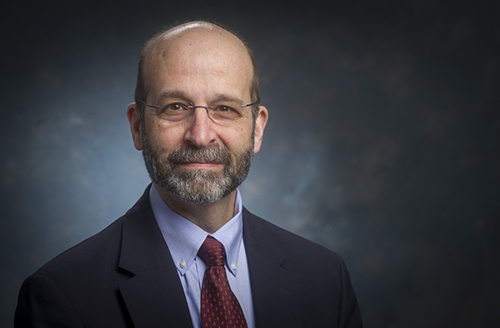 Last year under the leadership of David Rogers, M.D., MHPE, chief wellness officer, UAB Medicine launched the use of the Well-Being Index to help physicians track markers of their wellbeing as well as their risk for burnout. Since then, the tool has been expanded to cover advanced practice providers, residents, post-doctoral and clinical fellows, and medical students with plans underway to expand the program to other groups in UAB Medicine. While the individual information collected is confidential for users of the Well-Being Index, UAB Medicine leadership can see the aggregate organizational data. Using that information, Rogers was able to identify which wellness resources people would find most useful. Stress management and resilience training presented as the most requested resource.
Last year under the leadership of David Rogers, M.D., MHPE, chief wellness officer, UAB Medicine launched the use of the Well-Being Index to help physicians track markers of their wellbeing as well as their risk for burnout. Since then, the tool has been expanded to cover advanced practice providers, residents, post-doctoral and clinical fellows, and medical students with plans underway to expand the program to other groups in UAB Medicine. While the individual information collected is confidential for users of the Well-Being Index, UAB Medicine leadership can see the aggregate organizational data. Using that information, Rogers was able to identify which wellness resources people would find most useful. Stress management and resilience training presented as the most requested resource.
In response to this information, Rogers’s team has put together two presentations to address the need. The first presentation addresses work-related stress on the individual and is designed to offer background information on the negative effects of excess stress. For instance, stress is typically cited as the most common source for burnout. Studies have shown that with enough stress over a long period of time, the structure of the human brain can actually change, thereby making stress management even more difficult moving forward.
The second presentation shares information about ways to improve personal resilience. The framework is based around a program called SMART, which stands for stress management and resilience training. The program was developed by an integrative physician at Mayo Clinic named Amit Sood, M.D. “We selected this program because it has shown to be effective for different groups of physicians and others” said Rogers. “Dr. Sood has been thinking about and studying stress management and resilience training for 25 years.” The practices within the framework are gratitude, compassion, acceptance, higher purpose, forgiveness, a day for rest and reflection and one to celebrate. The presentation offers suggestions for ways to tap into those practices with the goal of boosting overall wellbeing.
Rogers explained that although he has been giving similar presentations across UAB Medicine, he is unable to get to every group in person, so he hopes these online resources will provide a more flexible delivery system for employees with busy schedules. “It is our position that the organization has an obligation to try to help people with their work, so that they are in a situation where they’re most engaged with the least stress possible.” said Rogers. “However, improving individual personal resilience is something that can be changed more quickly than we can make large organizational changes. Furthermore, resilience training and stress management is helpful for home-related stress in addition to work-related stress.”
There were several individuals who spent time completing the SMART training, so one model would be for groups to review the online presentations and request that a facilitator help the group brainstorm how they might collectively apply this model in their work together. Requests for facilitators can be made by contacting the UAB Medicine Professional Development Office at 731-9799.
The two wellness presentations can be found by clicking here and logging in to One. You can also get to them by visiting the Wellness page on One and selecting “Stress Management and Resilience Training Resources” from the column on the left.